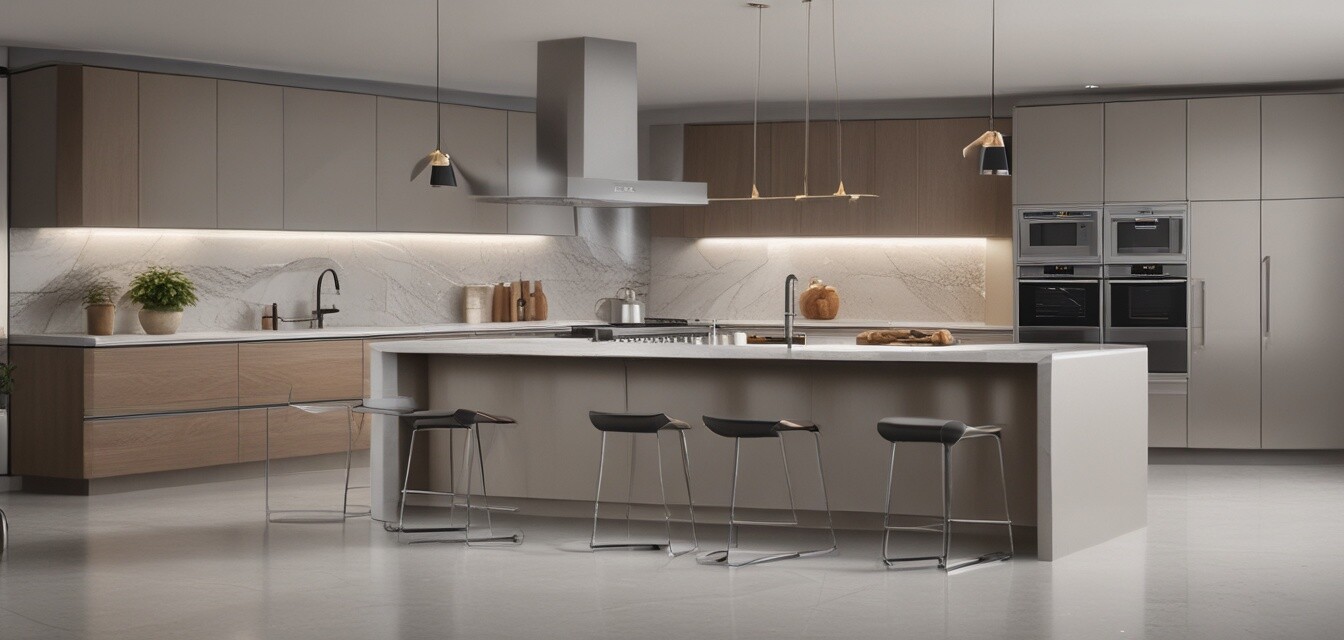
Future-Proofing Your Kitchen with Smart Appliances
Key Takeaways
- Smart appliances enhance longevity and adaptability in the kitchen.
- They provide convenience and efficiency for everyday tasks.
- Investing in recent technologies can save costs in the long run.
- Understanding compatibility and integration among devices is crucial.
- Staying updated with kitchen technology trends helps in making informed decisions.
As technology continues to evolve, the integration of smart appliances in kitchens is rapidly becoming a norm. For modern homeowners, future-proofing the kitchen is about making choices that promote longevity and adaptability. Smart technologies not only enhance the functionality of kitchens but also adapt to the user’s needs over time. This article explores the significance of smart appliances in creating a kitchen that is ready for the future.
Why Future-Proof Your Kitchen?
Investing in smart appliances is essential for several reasons:
- Enhanced Efficiency: Smart appliances streamline kitchen tasks, allowing for a more organized cooking process.
- Improved Sustainability: Many smart appliances are designed with energy efficiency in mind; they reduce waste and utility costs.
- Convenience: Features like remote control and scheduling further aid in making daily chores hassle-free.
The Role of Smart Appliances in Kitchen Longevity
Smart appliances are designed with modern technology that ensures they last longer and adapt with changing times. Here are some ways they contribute to longevity:
- Smart refrigerators monitor food freshness and can alert you when it's time to use groceries, reducing waste and saving money.
- Many modern appliances receive software updates, enhancing performance and extending functionality over time.
- Connectivity with smart home devices allows for real-time diagnostics and troubleshooting.
Choosing Compatible Smart Appliances
When selecting smart appliances for your kitchen, compatibility is essential. Ensure that the appliances you choose can integrate well into your existing system. Below is a comparison table of popular appliance categories and their integration features:
| Appliance Category | Integration Features | Common Brands |
|---|---|---|
| Smart Ovens | Wi-Fi enabled, voice control, app connectivity | Brand A, Brand B |
| Bluetooth-Enabled Appliances | Mobile control, real-time alerts | Brand C, Brand D |
| Smart Refrigerators | Temperature management, inventory tracking | Brand E, Brand F |
| Touchless Faucets | Motion-sensor technology, water usage tracking | Brand G, Brand H |
Keeping Up With Technology Trends
Staying informed about emerging kitchen technologies is essential for anyone looking to future-proof their kitchen. Some exciting trends include:
- AI Integration: With artificial intelligence, appliances learn user preferences over time.
- Eco-Friendly Options: Many companies are now focusing on eco-friendly materials and energy sources.
- Voice Assistance: Integration with voice assistants makes cooking even more hands-free.
For more insights, check our section on kitchen technology news to stay updated with the latest advancements and releases.
Long-Term Benefits of Smart Appliances
The investment in smart appliances provides several long-term benefits, including:
- Lower utility bills due to energy-efficient designs.
- Time savings through automation of repetitive tasks.
- Enhanced home value, making your property more attractive to prospective buyers.
Conclusion
Future-proofing your kitchen with smart appliances is an investment in convenience, efficiency, and sustainability. By selecting compatible appliances, staying informed on technology trends, and understanding the long-term benefits, you can create a kitchen that not only meets today’s needs but also adapts to future demands. Always consider how advancements in the kitchen technology landscape can influence your choices and enhance your cooking experience.
Tips for Beginners
- Start with one appliance at a time to understand the technology.
- Read reviews and compare different brands before purchasing.
- Look for products that offer extensive customer support and resources.
- Explore product integration potential to maximize efficiency.
Pros
- Increases kitchen efficiency and productivity.
- Saves money on utility bills in the long run.
- Compatible with various smart home devices.
Cons
- Initial costs can be high for smart appliances.
- Dependency on internet services for full functionality.
- Potential learning curve for new technology adaptation.